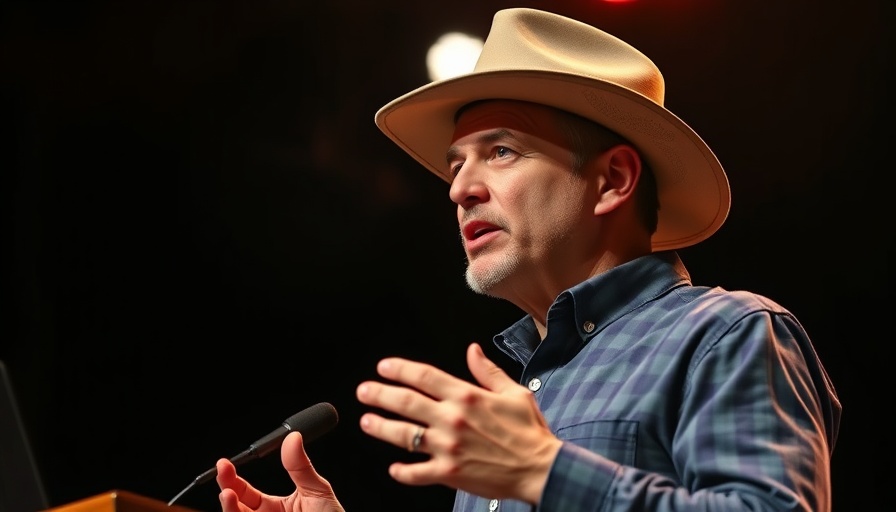
Redefining Masculinity: The Shift Towards Emotional Intelligence
In a world where stereotypes about masculinity often dictate behavior, Davonte Green sheds light on a transformative vision of healthy masculinity. His experience facilitating workshops in a California men's prison reveals startling truths about the consequences of misconceived notions of manhood. At these workshops, a simple yet profound question prompted many participants to step forward, revealing that they were serving sentences for crimes committed in less than a minute, a reflection of the impulsivity fueled by societal expectations of masculinity.
In 'A New Vision of Healthy Masculinity,' the discussion dives into redefining masculinity and its profound impact on society, exploring key insights that sparked deeper analysis on our end.
A Deep Dive into Emotional Management
Green's work is crucial, especially in communities where emotional expression is often replaced by aggression. By discussing his experiences and the impact of losing friends to violence and incarceration, he illustrates the dire need for men to cultivate emotional management skills. It’s not just about avoiding violence; it’s about understanding how feelings translate into actions and how a lack of emotional intelligence can perpetuate cycles of harm.
The P.A.U.S.E. Model: A Tool for Transformation
One of the most valuable insights Green shares is the P.A.U.S.E. model, which serves as a guide for men to reflect on their emotional states before escalating conflicts. This model not only aids in emotional regulation but also empowers men to redefine their reactions to everyday challenges. By paying attention to triggers, assessing their emotions, understanding root causes, and empathizing with others, men can break free from destructive patterns and become more thoughtful and aware individuals.
Building A Legacy of Healthy Masculinity
Advocating for a redefinition of masculinity is more important than ever. Green’s vision challenges the outdated notion that being a man is synonymous with being tough or aggressive. Instead, he emphasizes the strength found in vulnerability and mutual understanding. By fostering environments where emotional awareness and accountability are celebrated, we can cultivate healthier communities and futures.
Why It Matters: Community Impact of Healthy Masculinity
The discussions raised by Green not only resonate on an individual level but also underscore broader societal implications. When men are taught to process their emotions and interact with others thoughtfully, families are strengthened, communities are united, and violence is reduced. Men who embody healthy masculinity can serve as role models for younger generations, perpetuating a cycle of respect and emotional intelligence.
Conclusion: Embrace Change with P.A.U.S.E.
As we consider Green's insights on masculinity, it’s clear that the journey towards emotional awareness and accountability is vital for men everywhere. Each transition away from violence and impulsiveness towards understanding is a step towards building healthier relationships and communities. By embracing tools like P.A.U.S.E., men can redefine their narratives and contribute positively both to themselves and society.
 Add Row
Add Row  Add
Add 




Write A Comment